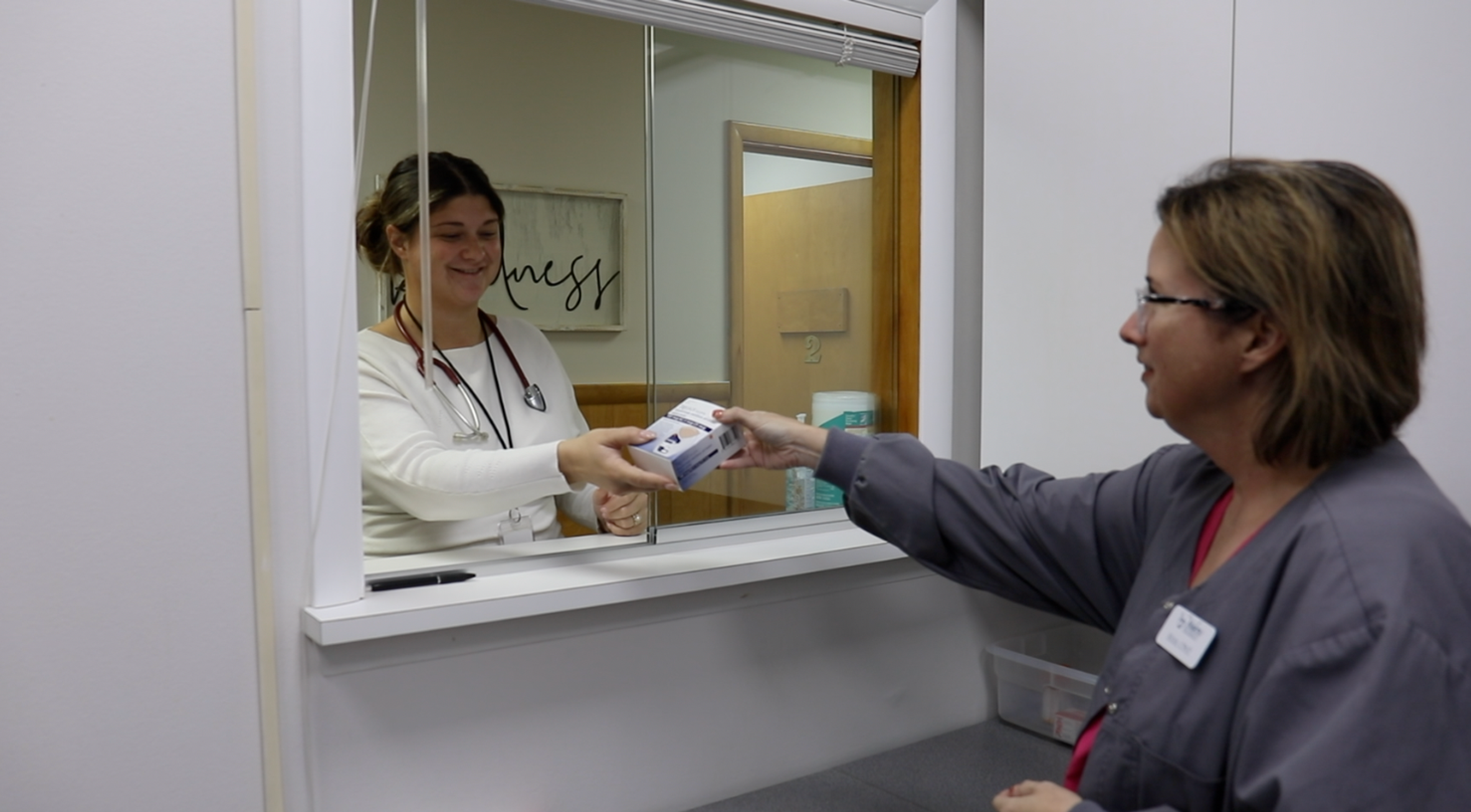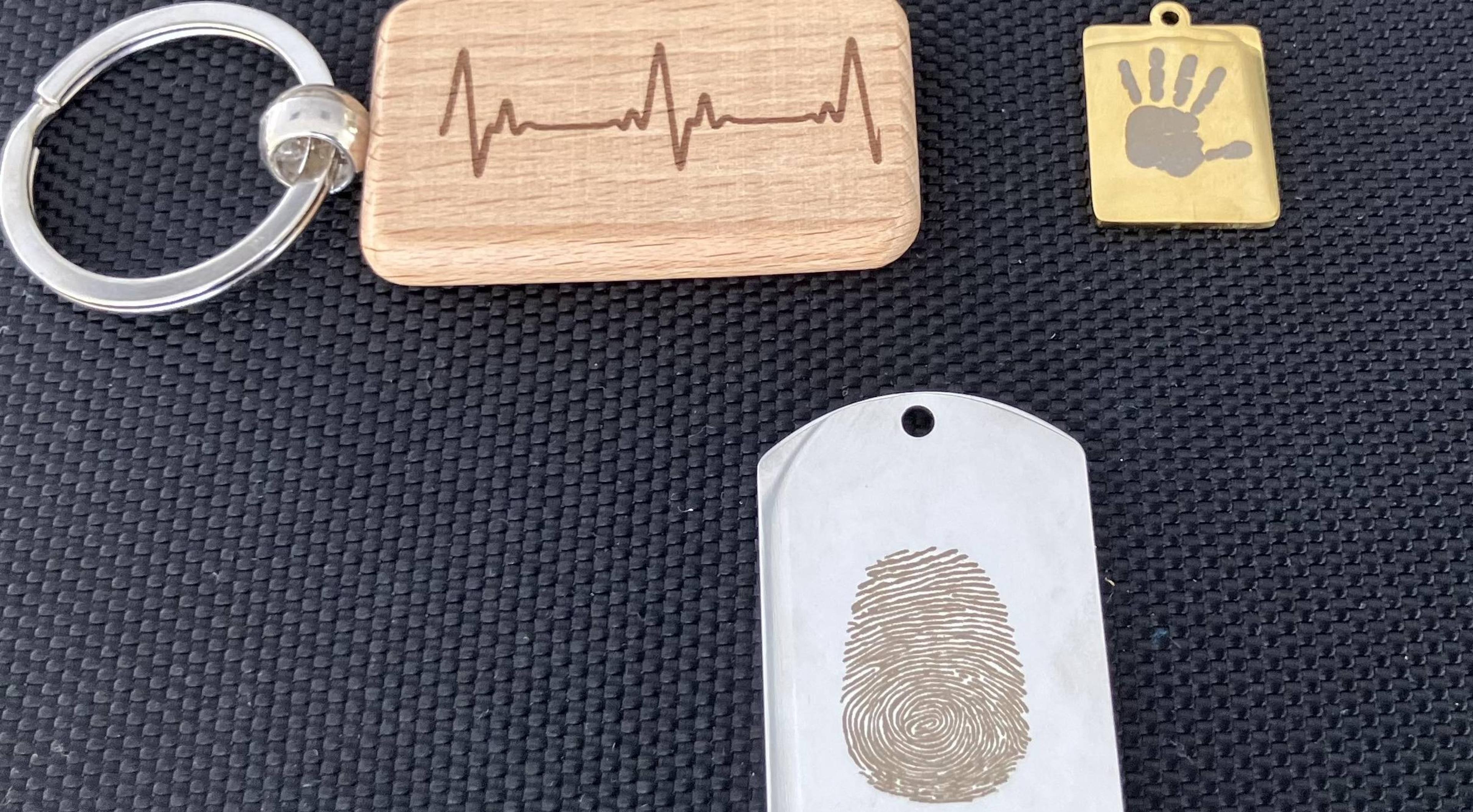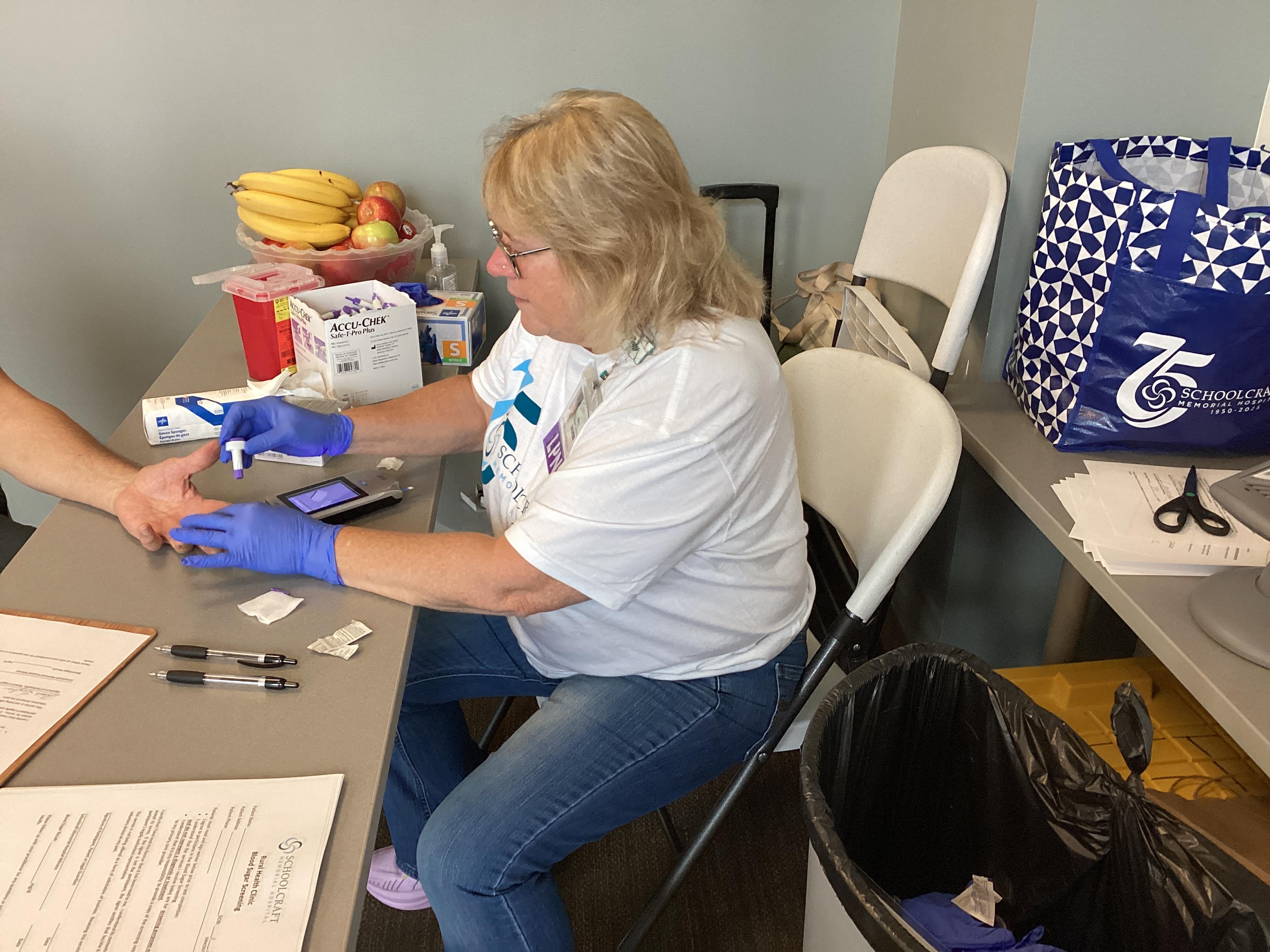Parkinson’s Diagnosis Met with Community Support for School Principal
Julie Bitely
| 6 min read

Jeremy Clark was 33 when his hand started shaking. At the time, he was assistant principal at St. Patrick’s Catholic School in White Lake and chalked it up to nerves and stress. It would take a full year bouncing from his primary care physician and different neurologists and specialists to receive a Parkinson’s disease diagnosis. He found out over the phone from an office worker unaware he hadn’t been informed yet. “You can probably imagine what that felt like,” Clark said. “It was shocking to say the least because I really didn’t know much about Parkinson’s.” He was transferred to Henry Ford Health System under the care of Dr. Neepa Patel, a movement disorder specialist. She was able to get Clark into a drug trial and the medication has drastically improved his tremors, reducing the disease symptom from seven hours a day to two, usually at midday and in the evening. Clark is one of the approximately 6,000 to 12,000 people diagnosed with early onset Parkinson’s disease annually in the United States. Only about 10 to 20 percent of Parkinson’s diagnoses are early onset, meaning the person is diagnosed before the age of 50. A neurodegenerative brain disorder that can result in rigidity, slowness of movement and tremors, not as much is known about the long-term effects of an early onset diagnosis. When he was diagnosed, he was 34 and had a four-year-old son and a wife. It was difficult to deal with the uncertainty. A fall trip with his 8th-grade students to Washington, D.C., led him to a quiet moment at the Washington National Cathedral. A man of faith, he knelt and prayed in the stillness of the grand church. He described feeling God’s presence and a sense of reassurance and peace about his diagnosis. Shortly after that trip, Clark was named interim principal at St. Patrick’s and he pressed on.
A community embrace
While he didn’t tell his school community about his diagnosis immediately, Clark did start researching the disease and found the Michigan Parkinson Foundation (MPF). He joined their Metro Detroit walk in 2017 and raised more than $6,000 with the help of his family. The MPF asked him to be the honoree at their 2018 walk, which meant he’d have the opportunity to share his experience with an early onset diagnosis, an opportunity he was excited about. “If my arm’s going to shake I might as well do some good with it,” he joked.
Jeremy Clark leading the walk's kickoff. Being the honoree meant press coverage and media interviews. He knew he wanted to tell his school family about his diagnosis before they read about it online or in the paper. It was nerve-wracking. “You don’t know what people are going to say,” he explained. “Are they going to think this will affect my job? Will there be judgement, will people stare at me?” When he sent the email, Clark experienced an almost instantaneous wave of love and support. Many said they suspected he had Parkinson’s but knew he would tell them when he was ready. “Apparently I didn’t hide it as well as I thought I did,” he said. At the walk, more than 100 people from his White Lake community showed up to be part of Team Clark. They raised $13,000 – a record amount for a non-corporate team – which meant that in two years, Clark had raised close to $20,000 on behalf of MPF. More than $500 was raised by a 3rd-grade girl from St. Patrick’s. She’d asked her birthday party guests to skip the gifts and donate to help her principal, a memory that Clark tears up at. In addition to helping him raise money for the cause, Clark describes a school community that has his back in many ways. There have been countless offers of prayer and staff and parents simply asking him how he’s doing, which means a lot. His son Justin tells him he prays for him daily and sometimes in the evening, he holds his dad’s arm tight to his chest to try to help control the tremors. Parents have told him he’s a living example they point to when they’re talking to their kids about how to face their own challenges. “Just to know that I have an effect … everybody has their cross to bear. This really has given me a greater appreciation for being able to do things. You understand that your time is limited and its really made me want to embrace life more and do things while I can,” he said.
‘It’s a constant reminder to not take things for granted.’
Clark keeps a positive attitude about his diagnosis. He cracks jokes when he makes presentations. ‘I’m not nervous, it’s just the Parkinson’s,’ is a popular opener for him. “I try to stay as positive as possible and that’s just who I’ve always been,” he said. Staying active is important for his spirit and his symptoms. He enjoys shooting hoops and playing the guitar, activities he wants to pursue for as long as he can. “You just have to appreciate what you have and it’s a constant reminder to not take things for granted,” he said. He finds taking Rock Steady Boxing classes at the Recovery Project helps his symptoms and so he tries to stay consistent. During his tenure as the walk honoree for the MPF, Clark talked about how important exercise has been for him and how impactful it can be for others diagnosed with Parkinson’s. The MPF established a fund to help others pay for physical activity pursuits.
Jeremy Clark with Mary Sue Lanigan at the foundation's annual gala. “Jeremy was instrumental in educating our staff on the need for affordable exercise classes for Parkinson’s. He brought it to my attention two years ago and the foundation made it a priority to provide funding for exercise classes,” said Mary Sue Lanigan, CEO of MPF. “For people with Parkinson’s disease, exercise is more than healthy – it is a vital component to maintaining balance, mobility and activities of daily living. Exercise and physical activity can improve many Parkinson’s disease symptoms and these benefits are supported by research.” On April 7, Clark will have the opportunity to attend the Detroit Tigers' Kids Opening Day with 25 of his students and their guardians. The MPF is engaged in a yearlong partnership with The Kirk Gibson Foundation for Parkinson’s and Blue Cross Blue Shield of Michigan to raise awareness for Parkinson’s. That partnership led to Clark receiving the opening day tickets. The BCBSM member said he’s excited about the opportunity to step onto the Tigers’ field. He’s more excited for the chance to honor the students who will be attending. They were selected in part because of their unwavering demonstrations of kindness, respectfulness and hard work ethic. Clark said these aren’t necessarily straight A students, but they’re the kids who deserve to be recognized for the values they display every single day. He’s inspired by them just as he’s inspired by some of the people he’s met who have been battling Parkinson’s disease for many years. The ones who are physically suffering to a greater extent than he is but still maintain a positive outlook. “It’s our body,” he said. “It’s not who we are, it’s just a product of our body and if you can still be a light in somebody’s world and use that to bring change and to make someone’s life better, then you should.” Learn more about the Michigan Parkinson Foundation here. If you enjoyed this post, read these:
All photos courtesy of Michigan Parkinson Foundation.





